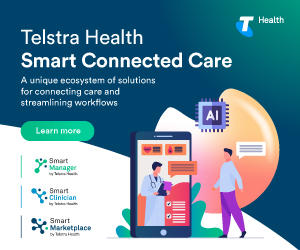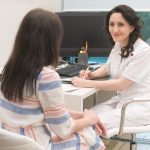Tackling stress as a doctor – what can you do?
Stress can be a normal part of any physician’s working day, but what happens when it all gets too much? In this article, we speak to Dr Charlotte Middleton, GP and Chief Medical Advisor at MedicalDirector, about how she manages her stress levels in order to achieve a more healthy, balanced and productive outlook.
Why stress in the medical profession is a big deal
Doctors and pharmacists are becoming more prone to mental health problems than any other profession, and the stress is starting to take its toll.
In Australia, a special report by Insight in 2017 investigated that among doctors, suicide rates are disproportionately high and mental illness is common.
In the UK, A report in the British Medical Journal in 2011 found that a third of doctors have a mental health disorder. And a Royal College of Physicians’ survey of junior doctors last year found that 70% worked on a rota that was permanently under-staffed, 80% felt their work put them under excessive stress, and a quarter felt it had a serious impact on their mental health.
On top of this, a recent report found more than a thousand British GPs have sought professional help from the NHS GP Health Service since it was set up in 2017, with most cases involving stress, anxiety and depression and about 2% addiction.
In the US, a study by MedScape this year of 15,000 physicians from 29 specialties found 42 per cent were burnt out and 12 per cent reported colloquial depression. Female doctors seemed slightly more likely to experience burnout, with forty-eight percent of women physicians reporting it compared to 38 percent of male physicians.
“I know what it’s like to really feeling under the pump, you’re running over time, the nurses are calling you, you have a waiting room full of people and an endless amount of admin to catch up on,” Dr Middelton says. “It can be really stressful and very hard to just calm down when you feel there is so much against you as a GP.”
“And we all strive for that utopian moment where we’re feeling 100% present with our patients and not feeling rushed or stressed, but in reality, it’s easier said than done, because there can be so many pain points to the daily workflow. But in terms of what works, it’s not necessarily a one size fits all solution. It’s a hard one to tackle because we’re all so busy, and there’s so much pressure to see all your patients.”
The art of mindfulness
According to Dr Middelton, there is a lot of research around the benefit of mindfulness, and just taking the time to try and be in the present moment.
“I know of studies that have gone into schools and workplaces, and done extensive research on the benefits of mindfulness and its positive impact on behavioural changes from childhood into adulthood,” she says. “I know it sounds like a bit of a buzzword, but there is actually a lot to it, especially when it comes to tackling the everyday stresses of being a doctor.”
For Dr Middleton, simple breathing exercises between patients really help bring her get back into the moment and to feel more focused for her next patient.
“I’ve really started doing this more regularly at the start of the day, between patients, or when I’m feeling rushed,” she says. “It’s about just taking that moment to close your eyes, breathe and be in the moment.” “It’s also a chance to tell myself, I’m doing the best I can!”
GP’s working part-time.
Dr Middelton, who splits her time as a GP in Wollongong and MedicalDirector’s Chief Medical Advisor, says she’s part of a growing pool of doctors who are now going part-time in order to gain more work-life balance.
“I was on a GP Facebook forum recently, where someone posted a question about how many GPs actually work full-time,” she says. “It was interesting because it was almost universal that no GP was working five days a week, and we were all doing other things as well with our time.”
“Most people were either mixing it up between practices, or between professional roles such as medical educator, advisory or supervisory roles, and doing perhaps three or four days a week in general practice to try and reduce their stress levels” she adds. “It really reflects how doctors are recognising that it’s a hard job to do full-time because it’s just too much, too stressful and simply too hard to keep up.”
Small changes can make a big difference
According to Dr Middelton, while there’s a lot of buzz around doctors under stress, and putting a lot of pressure on themselves, she feels that implementing small, practical measures can make a big change to your daily workflow.
“It’s not just the patient load, but all the admin work that goes with it than can be difficult to manage and squeeze into the working day,” she explains.
For instance, Dr Middelton finishes a few hours early every Wednesday, so she has time to catch up on all her administrative tasks.
“If I didn’t make this small change to my workflow, I’d be working from home most evenings to catch up through remote access,” she says. “Now over time, that’s not healthy.”
Take a real mental break
In order for Dr Middelton to feel more recharged, refocused and re-energised, she takes the time to take a real mental break from being a practitioner. For her, this means not turning on her computer on weekends for work-related tasks, and spending quality time with family. Regular breaks and holidays are also key.
“It’s so important to take a complete break from the working week,” she says. “And have regular holidays planned, so you always have something to look forward to. Even regular weekend getaways can give you that down time to help you recharge and be more energised to see your patients in the week.”









